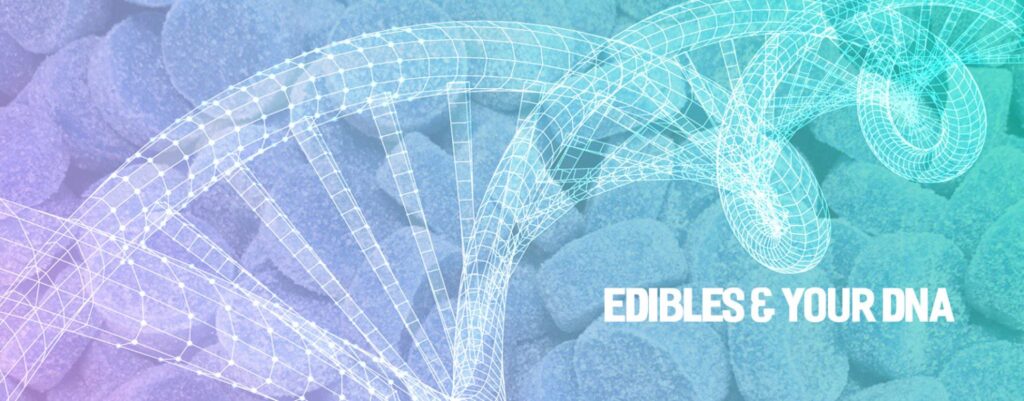
The Science Behind Cannabis and Your DNA
Cannabis can affect people differently.
A small example of this is the experience of a first-time cannabis user who doesn’t feel a psychoactive high when they consume cannabis. Experts speculate the most likely reason for this can be described as a type of ‘cannabis sensitization’. This theory posits your body can become more susceptible to THC’s psychoactive effects over time.
Another more interesting example happens when you share the same strain and the same amount of cannabis with a friend, yet you end up having two completely different experiences.
Why?
DNA is the most likely reason.
Here’s what we know so far about the burgeoning science of DNA and cannabis.
How is our DNA and cannabis’s DNA related?
As we all know, our DNA is unique to us. It is found in almost every single cell in our body: 46 chromosomes in 23 pairs. In terms of our health, how our DNA and subsequently our genomes are expressed can significantly affect our health and well-being.
Similarly, cannabis strains also have unique genomes. Each cannabis genome expressed effects that stains unique therapeutic potential.
Our DNA can play a huge role in determining what strains of cannabis might be a perfect fit for our unique genetic make-up.
Here’s how the theory works.
In the 1990’s, Israeli scientists discovered that our body produces natural cannabis-like molecules called endocannabinoids (endo means created within our bodies). These endocannabinoids molecules interact with the physiological system in our body called the endocannabinoid system (ECS).
The main function of our endocannabinoid system is to help our body constantly maintain homeostasis , harmony and balance at a cellular level in response to changes in the environment – whereby supporting other systems to operate at their peak performance levels.
Our ECS supports our health and well-being by playing an integral role in regulating balance in vital aspects of our biology.
What happens when we’re out of balance?
In 2004, Dr. Ethan Russo, neurologist, psychopharmacology researcher, and former Senior Medical Advisor to GW Pharmaceuticals, developers of EPIDIOLEX, the first cannabis plant-derived medicine approved by the FDA for the treatment of drug-resistant epilepsy syndromes published a paper on ‘Clinical Endocannabinoids Deficiency (CECD). He hypothesized that an ECS disturbance is at the root of some hard-to-treat illnesses.
Following this ground breaking theory, research demonstrated that endocannabinoid deficiency is involved in many autoimmune diseases, anxiety, cardiovascular disease, PTSD, cystic fibrosis, menstrual symptoms, neonatal failure to thrive, nausea, repetitive miscarriages, and many other diseases that remain treatment resistant.
The cannabinoid compounds in cannabis (THC and CBD are two of the most well-known), when ingested, mimic our endocannabinoids and restore homeostasis if we are depleted or running low on endocannabinoids (endocannabinoid deficiency).
In light of this, some researchers have shifted their focus from disease treatment towards disease prevention, with the focus primarily on how to support the ECS to function properly and maintain homeostasis.
In other words, rather than chasing the illness, the focus is placed on supporting the body’s homeostasis and ability to remain healthy and functioning optimally.
Cannabis DNA and Your DNA
Following this principle of preventatively supporting your body’s fundamental ability to find its own homeostasis and health, scientists are now testing people’s unique DNA to discover and recommend the ideal cannabis strain for you.
This is because your unique DNA means you will react slightly differently to cannabis than the next person. In other words, your body needs something slightly different than what someone else’s body needs in order to find its balance.
Essentially, individualized DNA testing can offer you a potential blueprint to create your own cannabinoid therapy.
“Think of us as a scientific matchmaker for cannabis. We provide you with your personalized ratio of cannabinoids and terpenes that align best with your genetic profile,” says Len May, CEO of the biotech company Endocanna Health in a recent interview with Rolling Stone.
Cannabis DNA and personal DNA pairing is experimental at this time, but may hold the key to future therapies aimed directly at targeting your own unique DNA.
